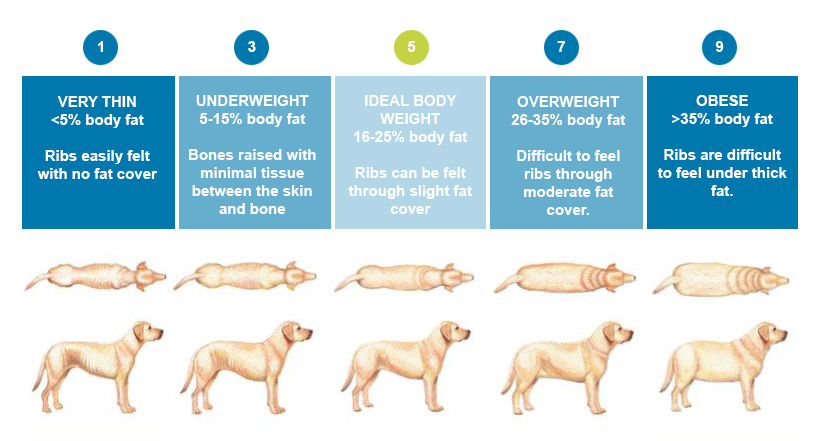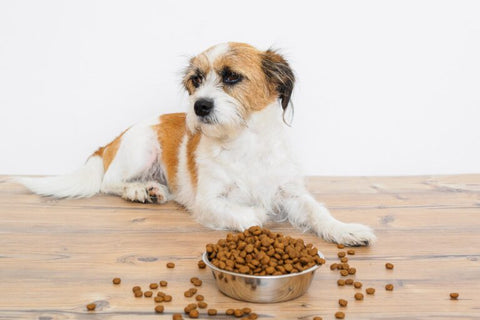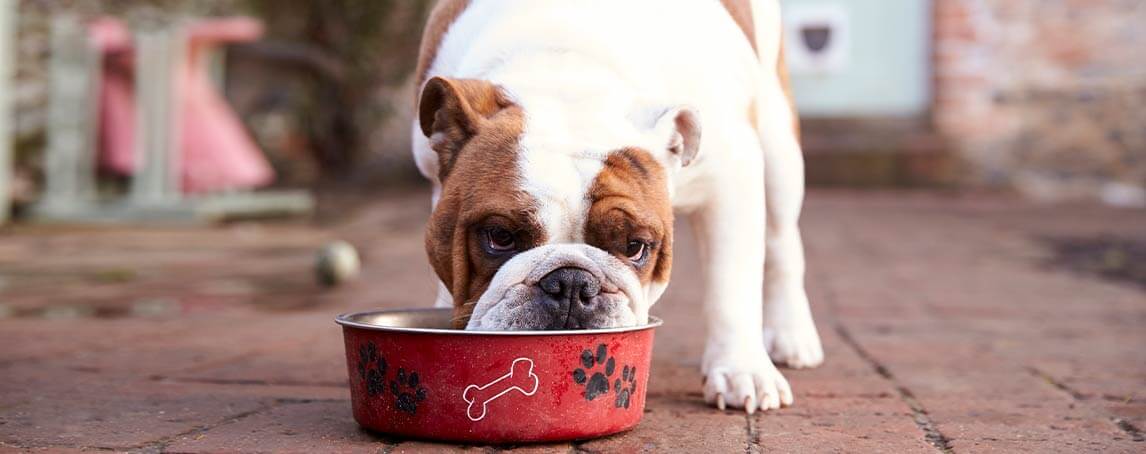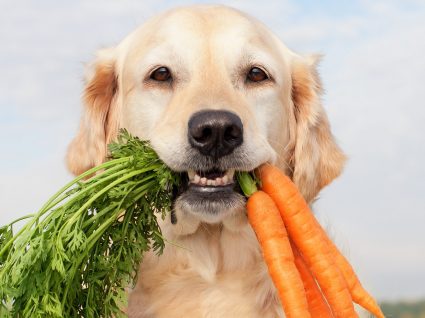
According to the Association for the Prevention of Obesity in Pets, 54% of dogs in the United States are considered to have overweight or obese .
In most cases, it is because We feed our pets more calories than they burn.
Which brings us back to the topic of winter nutrition…
The two types of dogs during winter (and what their basic dietary needs are)
Winter sleep – adjust to reduced activity
As the cold of winter sets in, many dogs are entering the couch era!
They take shorter and shorter walks, go on fewer walks, and don't participate in as much outdoor play.
For these less active dogs, this means one thing: they don't burn as many calories throughout the day.
To avoid gaining weight, this decrease in movement must be combined with a slight decrease in regular eating.
Just don't put too much in the bowl.
But you can also swap your current foods/treats for a lower calorie option.
If you feed traditional dry foods, consider transitioning from high-carb kibble to a leaner option.
There are so many low carb, high protein options available. For example, take a look at BRIT rations.
In addition to monitoring the calories consumed at meals, pay attention to treats.
For chubby dogs, steamed green beans, broccoli, carrots, or apple slices make excellent treats.
For meat lovers, look for dehydrated, single-ingredient treats.

In contrast, some dogs thrive in the winter wonderland, remaining active despite the colder temperatures.
Participating in extended play sessions and outdoor adventures, these winter-loving dogs may actually need calories. additional to sustain your energy levels and maintain core body temperature.
Meeting your nutritional needs becomes crucial, especially considering the extra energy expended through shivering. (a natural mechanism for heat preservation) and other activities.
If your dog's energy level increases and he is exceeding his average energy expenditure, he may benefit from some extra fat and protein in his diet.
A dollop of salmon oil or a few pieces of fresh salmon would be a great addition.
Supplements for dog nutrition in winter
- Solutions for hair loss: Winter generally causes an increase in shedding in dogs. The seasonal increase can be attributed to several factors. Firstly, many dogs, especially those with double coats, tend to shed their summer coat to make way for a thicker winter coat, a process that can result in more noticeable hair loss. Additionally, dry, heated indoor environments during winter can lead to increased skin dryness, causing dead or dry hair to fall out. To combat excessive hair loss, try incorporating essential nutrients, such as omega-3 fatty acids, into your dog's diet. A bit of Animo-Complex Salmon Oil for Dogs in your dog's morning meal every morning is strongly recommended!
- Joint Health Boosters: Cold weather can worsen joint problems in some dogs. Introducing glucosamine and chondroitin , along with omega-3 fatty acids , can support joint health and alleviate discomfort. Some wonderful supplement options include Hip and Joint - Hip and Joints - Anti-arthrosis , Glucosamine and Chondroitin Complex for Dogs and Cats, from Animigo and salmon oil for dogs and cats, also from Animigo .
- Hydration strategies: Hydration in the winter is often overlooked, but it is vital for overall well-being. Encourage water intake and consider supplementing with nutrient- and probiotic- rich options.

Always consult your veterinarian about changes in your dog's weight and diet.










Leave a comment